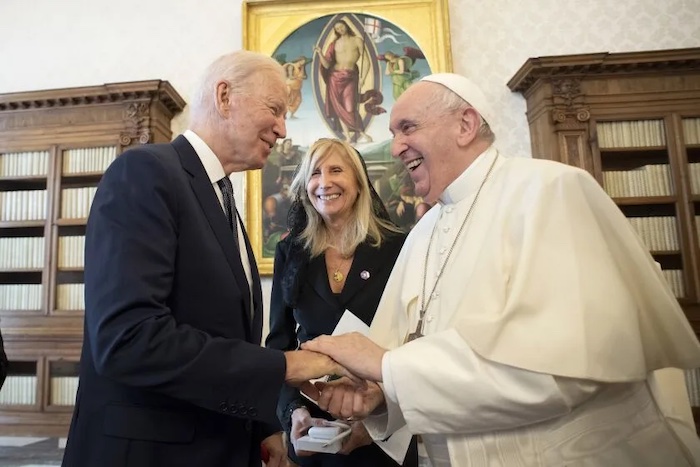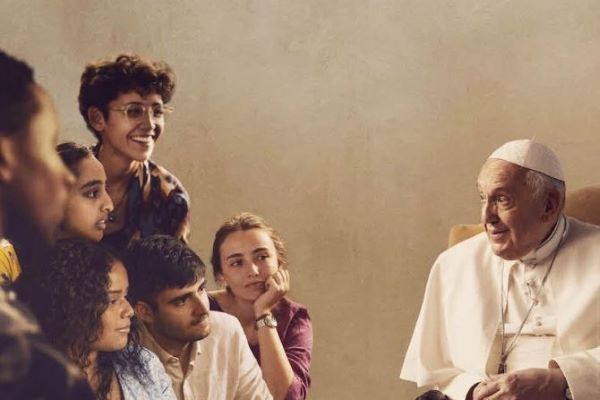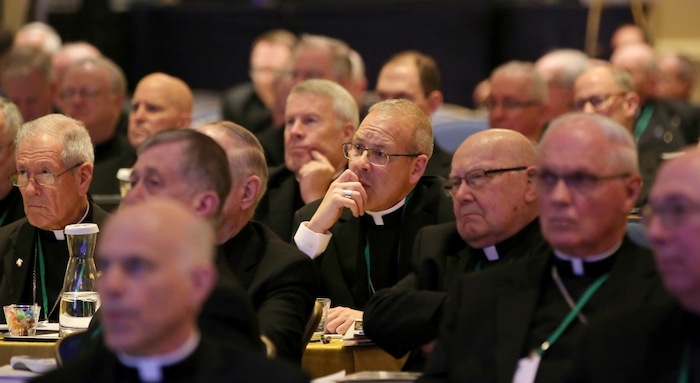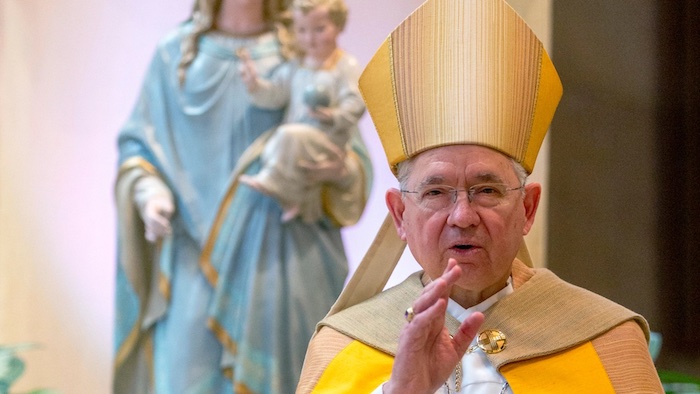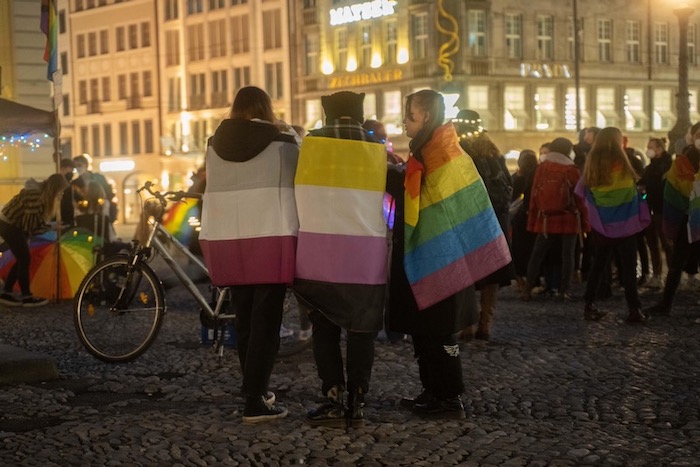
News: Fr. Bryan Massingale, a Black, gay priest and theologian at @FordhamNYC dreams of a church that celebrates and embraces LGBTQ people. An incredible talk given to LGBTQ students from Jesuit colleges and universities…. https://t.co/oa1ec2feFQ
— James Martin, SJ (@JamesMartinSJ) May 8, 2023
As a child in inner-city Milwaukee, Father Bryan Massingale’s grandmother gave him a leather-bound copy of The New Webster Encyclopedic Dictionary of the English Language, along with a dream that he might need it someday.
“My grandmother was not delusional. She did not live in denial of reality,” said Massingale, a Jesuit priest who holds an endowed chair in ethics at Fordham University, in New York City. “Her gift was a vision, an act of hope. It was a dream, a hope, a reminder that the neighborhood, with its drugs, violence and rodent-infested corner store with overpriced goods, did not define or limit who I could be.”
That’s important to know, he declared, since he was speaking as “a Black, gay priest and theologian” at Fordham’s recent Ignatian Q Conference for LGBTQ students from Jesuit campuses. This event was a “space for our dreaming, for queer dreams” of hope for “despised and disdained and stigmatized peoples,” he added.
“I dream of a church where gay priests and lesbian sisters are acknowledged as the holy and faithful leaders they already are,” he said, in a published version of his address. “I dream of a church where LGBTQ employees and schoolteachers can teach our children, serve God’s people and have their vocations, sexuality and committed loves affirmed. …
“I dream of a church that enthusiastically celebrates same-sex loves as incarnations of God’s love among us.”
Theological visions of this kind inspire hope for some Catholics and concern for others.
Thus, the North American phase of the Vatican’s global Synod on Synodality found “strong tensions within the Church,” while participants in the virtual assemblies also “felt hope and encouragement and a desire for the synodal process to continue,” according to the 36-page report (.pdf here) released on April 12 by U.S. and Canadian Catholic leaders.
Catholics are “called to act co-responsibly in a synodal fashion, not to wait until we know how to do everything perfectly, but to walk together as imperfect people,” said one group, in its summary of the process. Another group added: “When Church structures and practices are dynamic and able to move with the Holy Spirit, everyone is able to ‘use their gifts in service of the Church and of each other.'”
Calling for “greater inclusivity and welcome” within the church, the final report said this was especially true with “women, young people, immigrants, racial or linguistic minorities, LGBTQ+ persons” and “people who are divorced and remarried without an annulment.”
But the report also warned about the “danger of false or unrealistic expectations regarding what the synodal process is meant to be and to ‘produce,’ since people living in “North American culture” tend to focus on “measurable results and … winners and losers.” Some participants, for example, questioned calls for “radical inclusion,” while asking about the “pastoral and even doctrinal implications” of that term.

